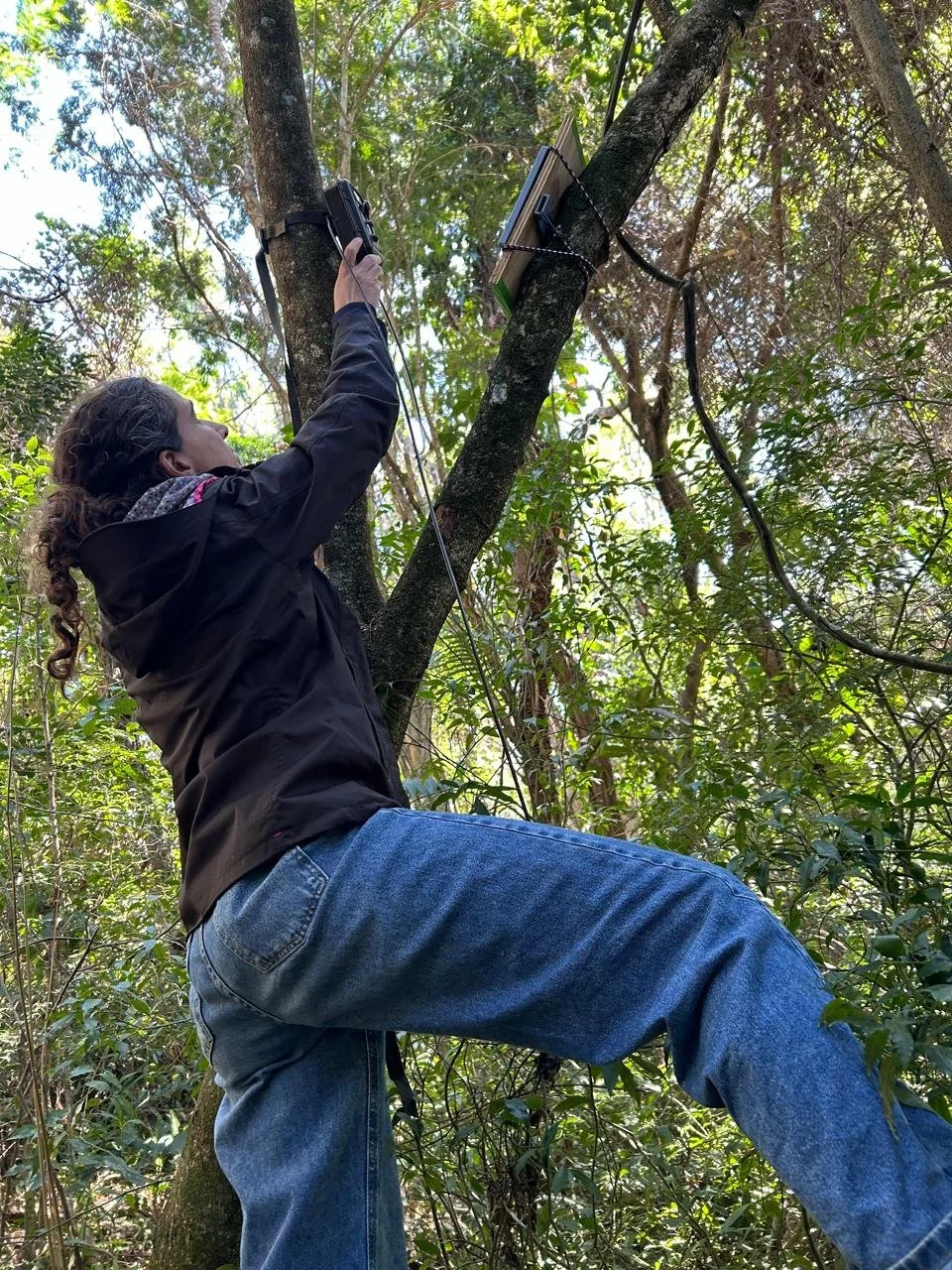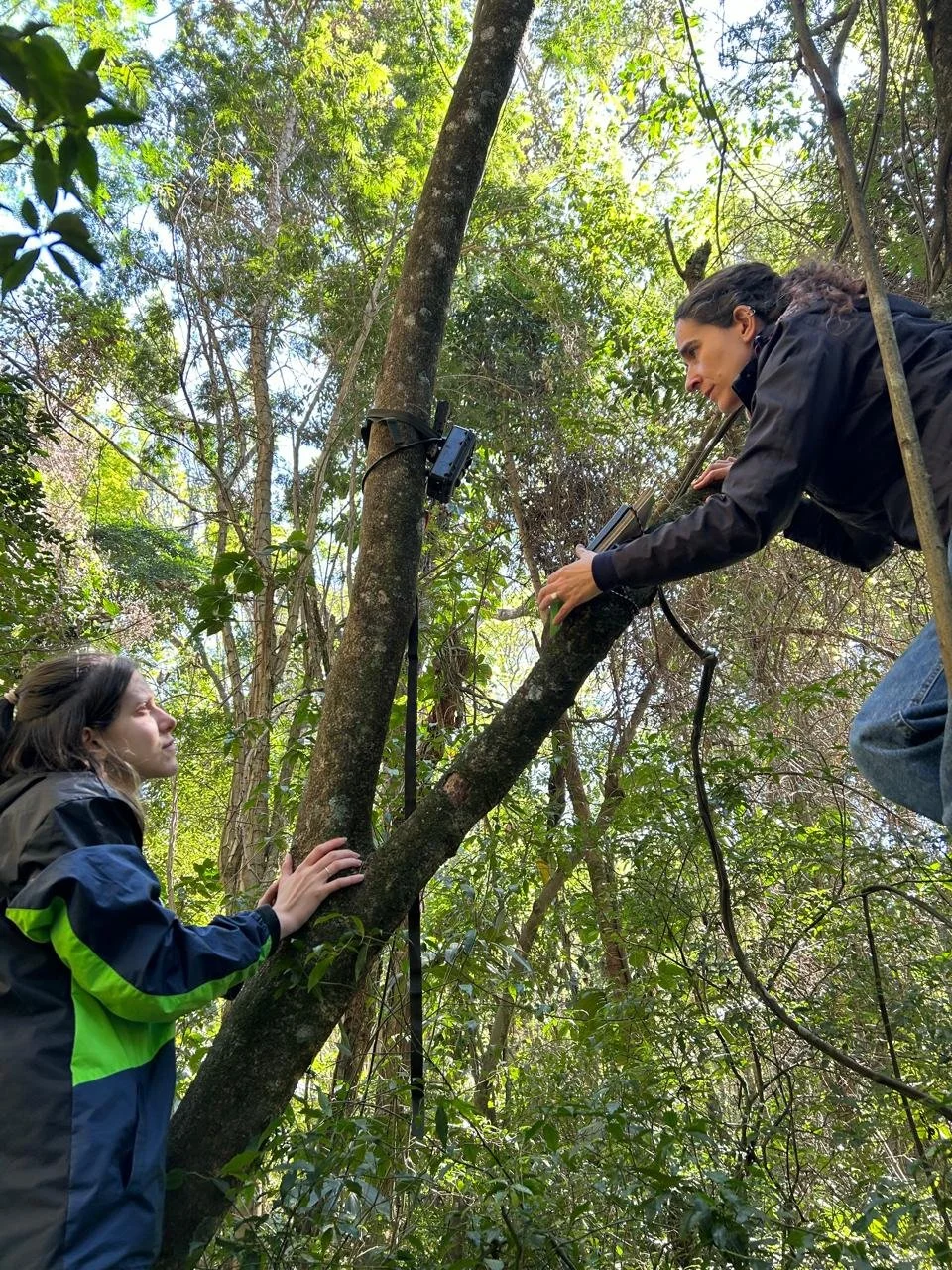Field testing a remote, non-invasive method to monitor wild animal welfare through salivary biomarkers
Grantee: Maristela Martins de Camargo
Institutions: Instituto de Ciências Biomédicas, Brazil; FUSP, Rwanda
Grant amount: $45,380
Grant type: Seed grant
Focal species: None specified
Conservation status: Least concern
Disciplines: Physiology, animal welfare science, wildlife management, genetics/genomics
Research locations: Brazil and Rwanda
Project summary
Biological samples are necessary to establish baselines and benchmarks upon which welfare metrics can be developed, but collecting them is generally a stressful and invasive process. Our project aims to elevate the standard by which we collect wildlife samples by introducing a novel method of saliva collection that does not involve immobilizing — or even encountering — the animal being sampled. This project will isolate DNA/RNA from saliva samples of lowland tapirs to detect viruses, as well as health and welfare markers, exploring them within a comparison amongst two regions with varying levels of degradation and human-wildlife conflict and, we assume, associated variations in the welfare and health of wild animals.


